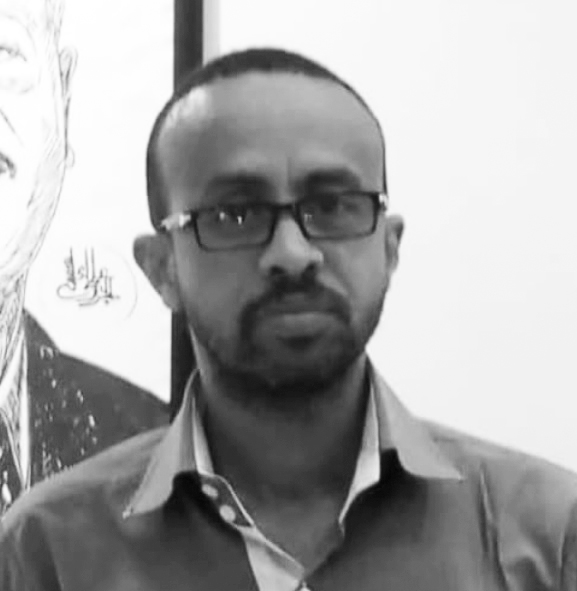
Sudan: A Wave of Initiatives but No Will for a Solution
I dont believe that any dialogue among Sudanese components, whether individuals or groups, regarding the complexity that has afflicted the state of Sudan due to war, has taken place without mentioning addressing the roots of the Sudanese crisis and the necessity of addressing the proposed solutions to these roots. It is described as the only way out of the states spiral of crises, which, once halted, resume turning for reasons that exhibit a significant resemblance, confirming the persistence of causes and the multiplicity of outcomes.
Excessive blame for describing the roots of the Sudanese crisis leaves no room for doubt that the Sudanese political club has remained in a state of lethargy and haste, where little effort is expended to produce necessary remedies for a deteriorating situation.
The ongoing war in Sudan could serve as a turning point in the political history of this troubled country, considering it represents the most terrible and costly aspect of the Sudanese crisis. It affirms that all claims to address the roots have been lost in the labyrinth of authentic problems within the Sudanese political club.
Before the wars outbreak, the gateway to the political club remained without a gatekeeper inquiring about entry permits that allow for responsible and straight engagement within the club, according to democratically agreed-upon requirements. Instead, it was overrun by the discourse of hatred, tribalism, and regionalism, and by those who believed that weapons were a tool of political and democratic action.
The bazaar of initiatives opened by the political process that occurred before the outbreak of war in mid-April last year appeared as a plethora of statements in the inbox of solving the Sudanese crisis. However, its essence was nothing more than confirmation that there are inherent flaws that continue to haunt the Sudanese mind whenever there is a need to interact with political crises.
It was impossible to describe the flood of proposed initiatives as a solution to the crisis created by the deviations in the signing of the post-December constitutional document and the aftermath of the October 25th coup as a healthy phenomenon that could provide more than one solution to a politically inflamed situation in Sudan.
It was a deliberate inundation, intended to keep the Sudanese reality trapped in the crises it created, with a wide gap between it and the aspirations voiced by the Sudanese revolution.
We ate from the forbidden tree and were expelled from the paradise of political debate into the hell of bullets. Common sense tells us that extinguishing the fire of political discord is entirely different from extinguishing the fire of war, especially in a country that hoards a strategic reserve of hatred and ignorance. It holds the keys to its granaries in the hands of interest groups keen on preventing this country from reaching its ends with a smooth and democratic transition. Here we are, reopening our eyes to address the issue of war with the same tools that failed to heal pre-war political disputes, and its a losing proposition.
Locally, banners are raised here and there, claiming efforts to stop the war. It doesnt take much effort to realize that war and the high costs borne by the Sudanese have not altered the chemistry of the political club. Everyone still clings to their seats, maintaining the distance imposed by political disputes in all their transformations.
Regionally, the Sudanese crisis has not escaped the deluge of multiple initiatives to end the war. Some have chosen the Sudans Neighbors sign to enter the war fray. Africa utilized its organizations, which hadnt discharged any responsibilities or detected any democratic lapses but suddenly found a coup in their backyard. Foreign hands outside the continent acted under its watchful eye and absent vigilance. The African Union acted, and IGAD acted, yet the war in Sudan has now entered its sixth month without meaning much to the initiators.
Internationally, the repeated courageous calls by some representatives of countries at the 78th General Assembly of the United Nations in New York to reconsider the performance of the international organization were not a coincidence but driven by the conviction of fundamental flaws preventing the achievement of the goals set out in the Charter.
A bureaucratic procrastination and interaction govern a humanitarian crisis, for which no delays in solutions are permissible.
The solution lies in creating a unified will for an immediate ceasefire without drowning in the details of condemnation, condemnation speeches, and the emotional discourse about the need to open safe humanitarian pathways.
In Sudan, there are no ears that listen to empty and hollow employee reports and closed-room discussions that do not matter to the souls lost and the violations that occur. There is no daily and routine work that justifies lavish spending on business management because these ears have heard these reports and data for three decades, and the result was the lifting of sanctions and the continuation of violations against civilians.
The Sudanese situation will not find its way to recovery unless we abandon the path of inundation with war cessation initiatives and choose one safe path. It is clear that the multiplicity of solution paths is one of the roots of the Sudanese crisis that must be addressed.


